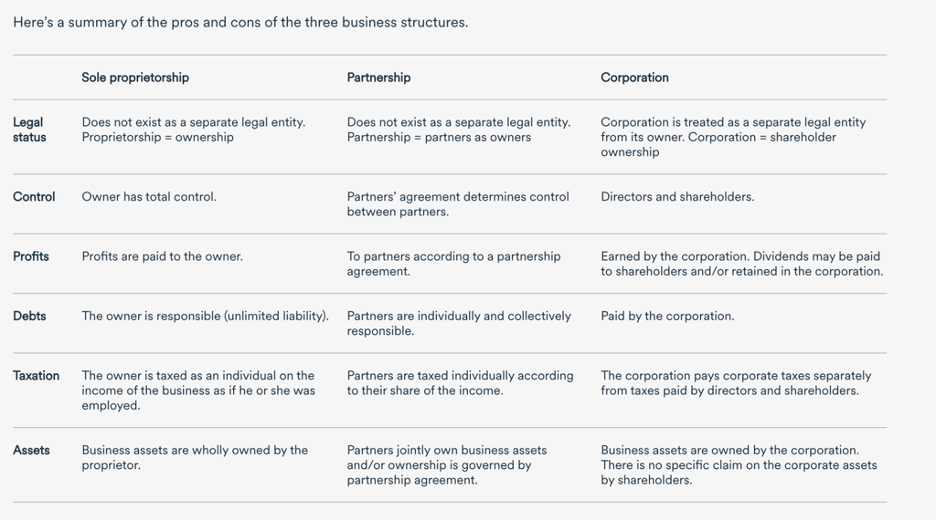
Navigating the Canadian Market: Essential Steps for Starting a Business in Canada
Starting a business in Canada can be a rewarding venture, but it requires careful planning and execution. Navigating the Canadian market may seem daunting, especially for entrepreneurs unfamiliar with the country’s regulations, cultural nuances, and business landscape. However, armed with the right knowledge and a well-thought-out strategy, you can set your business up for success in the Great White North.
Essential Steps for Starting a Business in Canada
Understanding the Canadian Market: Research and Analysis
Before diving into the Canadian market, it’s crucial to conduct thorough research and analysis.
Canada is a diverse country with various regional markets, each having its own unique characteristics. Start by identifying your target market and understanding consumer behavior, preferences, and trends. Conduct market research to assess demand, competition, and potential challenges.
Choosing the Right Business Structure
Selecting the appropriate business structure is essential for legal and financial reasons.
Common business structures in Canada include sole proprietorships, partnerships, and corporations. Each has its advantages and disadvantages in terms of liability, taxes, and ownership. Consulting with a business lawyer or accountant is advisable to make an informed decision.

Registering Your Business
To operate legally in Canada, you must register your business with the relevant authorities.
The process of registration varies depending on your business structure and location. Obtain the necessary permits and licenses required to operate within the country’s regulations.
Before you register
Before you register your business, you will need to know:
• where your main office will be located
• which other provinces and territories you plan to operate in
• your proposed business name (see Choosing a name)
• the type of business that best suits your needs (see sole proprietorship, partnership, corporation or co-operative for help determining which structure is right for you).
Understanding Taxation and Financial Management
Navigating the Canadian tax system is crucial for maintaining compliance and optimizing your business’s financial health.
Familiarize yourself with federal, provincial, and municipal tax requirements. Consider hiring an accountant to help with tax planning and financial management.
Securing Funding for Your Business
Whether you’re starting a small venture or a large-scale enterprise, securing adequate funding is vital.
Explore funding options such as business loans, grants, and angel investors. Develop a comprehensive business plan that outlines your financial needs and potential returns.
Canada has a thriving start-up ecosystem, with several innovative companies making significant waves in various industries. Here are some of the biggest Canadian start-ups, along with their impressive valuations:
| Start-up | Valuation (in billions) |
| Shopify | $150 |
| Lightspeed | $10.4 |
| Ritual | $1 |
| Wealthsimple | $5 |
| Element AI | $1.7 |
| Hootsuite | $1 |
| SkipTheDishes | $2.5 |
| TouchBistro | $1 |
| Ecobee | $1 |
| Kik Interactive | $1 |
Shopify: As one of Canada’s most successful start-ups, Shopify is an e-commerce platform that has revolutionized the way businesses operate online. With a valuation of $150 billion, Shopify continues to empower entrepreneurs and small businesses worldwide.
Lightspeed: A leading point-of-sale and e-commerce software provider, Lightspeed has garnered a valuation of $10.4 billion. The company’s innovative solutions have enabled businesses to streamline their operations and enhance customer experiences.
Ritual: With a valuation of $1 billion, Ritual has become a prominent player in the food delivery and ordering industry. Their app facilitates seamless ordering and pick-up from local eateries, making it a hit among busy professionals.
Wealthsimple: As a digital investment platform, Wealthsimple has disrupted the financial industry and amassed a valuation of $5 billion. The company’s user-friendly interface and diverse investment options have attracted a growing number of investors.
Element AI: Focused on artificial intelligence solutions, Element AI has made significant strides in the tech world, earning a valuation of $1.7 billion. Their AI-driven products have applications across various sectors, driving innovation and efficiency.
Hootsuite: A pioneer in social media management, Hootsuite’s valuation stands at $1 billion. The platform has become a go-to tool for businesses and organizations looking to enhance their social media presence and engagement.
SkipTheDishes: As a leading food delivery service, SkipTheDishes boasts a valuation of $2.5 billion. Their user-friendly app and wide restaurant network have made them a favorite among Canadians seeking convenient meal delivery.
TouchBistro: Catering to the restaurant industry, TouchBistro has achieved a valuation of $1 billion. Their iPad-based point-of-sale system has transformed how restaurants manage orders, payments, and inventory.
Ecobee: Revolutionizing home climate control, Ecobee has a valuation of $1 billion. Their smart thermostats and energy-saving solutions have gained popularity among eco-conscious consumers.
Kik Interactive: As a messaging app with a focus on privacy, Kik Interactive has achieved a valuation of $1 billion. Their platform continues to provide a secure and engaging messaging experience for users.
These Canadian start-ups exemplify the nation’s entrepreneurial spirit and ingenuity, contributing significantly to the growth of the Canadian economy and leaving a mark on the global business landscape.
Buying a Canadian Business
For entrepreneurs looking to enter the Canadian market without starting a business from scratch, acquiring an existing Canadian business can be a viable option. Buying a Canadian business offers several advantages, such as gaining immediate access to an established customer base, existing products or services, and an established brand reputation. Moreover, the acquisition can also provide valuable insights into the local market and regulatory landscape, helping to navigate the Canadian business environment more effectively. However, it’s essential to conduct thorough due diligence before finalizing any business acquisition to ensure that the investment aligns with your goals and objectives. Seeking the assistance of a business broker or legal and financial advisors can be valuable in the process, ensuring a smooth and successful transition into the Canadian market.
Main Cities for Business in Canada
Canada is home to several vibrant cities that offer excellent opportunities for starting and growing businesses. Here are three main cities, including Ottawa, that stand out for their business-friendly environment and economic prospects:
Toronto: As Canada’s largest city and financial hub, Toronto is a major center for business and commerce. It boasts a diverse economy, with thriving industries such as finance, technology, healthcare, and media. Toronto’s strategic location, well-developed infrastructure, and access to a highly skilled workforce make it an attractive destination for both domestic and international entrepreneurs.
Vancouver: Situated on the West Coast, Vancouver is renowned for its stunning natural beauty and dynamic business scene. The city has a strong focus on technology, film and television production, tourism, and green industries. Vancouver’s proximity to Asia and its multicultural population contribute to its global appeal and make it an excellent choice for businesses seeking international connections.
Ottawa: As the capital city of Canada, Ottawa holds a unique position in the country’s business landscape. Apart from being the center of political affairs, Ottawa has a growing technology sector and a thriving entrepreneurial community. With a strong emphasis on research and development, particularly in the fields of technology and telecommunications, Ottawa offers opportunities for innovative start-ups and established businesses alike. Search for Ottawa businesses for sale here.
These three cities, Toronto, Vancouver, and Ottawa, provide an array of benefits and resources for businesses, making them prime locations to consider when navigating the Canadian market. Each city offers a distinct business ecosystem, so entrepreneurs can choose the one that aligns best with their industry and objectives.
Establishing a Strong Online Presence
In the digital age, having a robust online presence is essential for success.
Create a professional website that showcases your products or services and invest in search engine optimization (SEO) to improve your online visibility. Engage with your audience on social media platforms to build brand awareness and loyalty.
Hiring and Managing Human Resources
Your team plays a critical role in your business’s success, so focus on effective hiring and management practices.
Develop a hiring strategy that aligns with your business goals and values. Provide ongoing training and support to your employees to ensure high productivity and job satisfaction.
Complying with Canadian Labour Laws
As an employer in Canada, you must adhere to labor laws and regulations to protect both your employees and your business.
Ensure your workplace is compliant with employment standards, including working hours, minimum wage, and safety regulations.
Building Strong Business Relationships
Networking and building relationships are essential in the Canadian business landscape.
Attend industry events, join professional associations, and engage in networking opportunities to expand your business contacts and potential partnerships.
Understanding Cultural Nuances
Canada is a culturally diverse country, and understanding its nuances can positively impact your business.
Be sensitive to cultural differences and adopt inclusive practices in your business operations and marketing campaigns.
Protecting Intellectual Property
Safeguarding your intellectual property (IP) is crucial for maintaining a competitive advantage.
Consult with an IP lawyer to protect your innovations, logos, and branding through patents and trademarks.
Implementing Effective Marketing Strategies
Marketing is the key to reaching your target audience and growing your customer base.
Craft a comprehensive marketing plan that includes digital marketing, content creation, and traditional advertising.
Providing Excellent Customer Service
Exceptional customer service can set your business apart from the competition.
Prioritize customer satisfaction and gather feedback to continuously improve your products or services.
Evaluating and Adapting Your Business
The Canadian market is dynamic, so regularly assess your business’s performance and adapt to changing trends.
Monitor key performance indicators (KPIs) and stay informed about market developments to make informed decisions.
Contributing to the Community
Being a responsible and engaged corporate citizen can enhance your reputation in Canada.
Participate in community initiatives and demonstrate a commitment to environmental sustainability.
Expanding Your Business
If your business experiences success, consider expansion opportunities within Canada and internationally.
Conduct thorough research and create a comprehensive expansion plan to ensure a smooth transition.
Overcoming Challenges and Resilience
Starting a business comes with its share of challenges, but resilience is key to long-term success.
Stay determined and adapt to challenges, learning from setbacks to grow and improve.
Navigating the Canadian Market: Essential Steps for Starting a Business in Canada
Starting a business in Canada requires a strategic approach, understanding of the market, and compliance with legal and cultural considerations. By following these essential steps, you can increase your chances of success and establish a strong presence in the Canadian business landscape.
FAQs
Q: What are the common business structures in Canada?
A: Canada offers several business structures, including sole proprietorships, partnerships, and corporations. Each has unique characteristics in terms of liability, taxation, and ownership.
Q: How do I register my business in Canada?
A: To register your business, follow the process relevant to your business structure and location. Obtain the necessary permits and licenses to operate legally.
Q: How can I secure funding for my business?
A: Explore funding options such as business loans, grants, and seeking investors. Develop a compelling business plan to attract potential financiers.
Q: What are some effective marketing strategies for my Canadian business?
A: Craft a comprehensive marketing plan that includes digital marketing, content creation, and traditional advertising. Understand your target audience and tailor your strategies accordingly.
Q: How important is cultural sensitivity in the Canadian market?
A: Cultural sensitivity is crucial in Canada, given its diverse population. Embrace inclusivity in your business operations and marketing efforts.
Q: How can I protect my intellectual property in Canada?
A: Consult with an intellectual property lawyer to safeguard your innovations, logos, and branding through patents and trademarks.
Conclusion
Embarking on the journey of starting a business in Canada can be both exciting and challenging. By taking the essential steps outlined in this guide, you can position your business for success in the Canadian market. Remember to stay adaptable, make informed decisions, and prioritize building strong relationships within the business community. With determination and resilience, your business can thrive and contribute positively to the vibrant Canadian economy.
Image Credit: iStock












